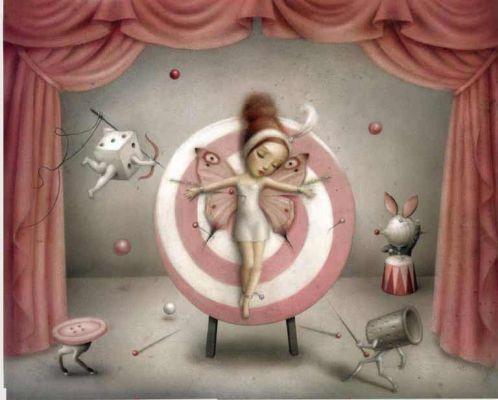
Last update: Augusts 09, 2015
We know: happiness is a concept as widespread as it is complex. One could speak of aspiration, of something that is reached briefly and which, instantly, loses some of its splendor, of its intensity. However, the everyday life of the little things remains, a simple balance with which to feel good, where we can appreciate everything that surrounds us, accompanies us and defines us.
Maybe be aware of this "humble" happiness it is a gift that not everyone has. Let's take an example: according to Forbes magazine, most of the richest population on our planet is unhappy.
This shows us two things, which perhaps we already knew, namely that happiness is not bought with a check full of zeros and that the art of embittering life is perhaps the order of the day in all social scales, even among millionaires.
The art of generating unhappiness
Sometimes we worry too much about things that don't matter, things that have no solution or that aren't necessarily going to happen. We all know people who tend to anticipate things: “We have to do this because that can happen”, obsessive ideas in which there is a continuous insecurity, which embitters themselves, but also those around them.
Fear of failure, fear of loneliness ... all this sometimes pushes us to do things that complicate reality even more, our apparently simple everyday life in which there are no serious problems.
The art of embittering life sometimes presents itself through attitudes that are not easily recognizable. Let's see some examples:
-Your present is fine, there is no apparent difficulty or problem. However, you begin to obsess over the future, with the uncertain. Why is it obvious: the tranquility does not last long.
-If there is something wrong with your life, no matter how small, everything gets complicated. Have you argued with anyone? Have you had a bad day at work? This is already enough to have a bad week and extend this negativity to all areas of your life.
-The important thing is don't be alone. You force yourself to endure any situation and person in order not to face loneliness.
-If you have reached a goal that you had set for yourself and you are specialists in the art of embittering your life, you certainly won't enjoy it. It is possible that you set yourself another even more difficult goal, the complication of which causes you frustration.
-If someone makes you a criticism, even if constructive, certainly you do not accept it. Nobody does something for the sake of others, most people have an ulterior motive, never good.
The absence of the vital sense
The examples given already show us broadly what are the dimensions that define these people unable to appreciate the happiness or goodness of things and the people around them. Envy, delusions of persecution, the inability to take responsibility, exaggerated perfectionism, excessive reasoning, negativism, low self-esteem ... in essence, the emptiness of the vital sense.
There is no need to follow a religion or practice a specific philosophy to realize that our life must have meaning. A feel for ourselves. The people around us are not a threat, no one is hiding around a corner to harm us.
Similarly, we must not obsess about what will happen tomorrow or fall into the error of excessive reasoning. The important thing is to keep a balance, use logic, know how to trust.
The art of NOT getting embittered in life requires learning to trust, it is impossible to control all aspects of our life to prevent certain things from happening. Happiness is not a goal, it is a state, an emotion. Happiness is found day after day, in the present and in our ability to know how to cultivate it in the humblest way possible.


























